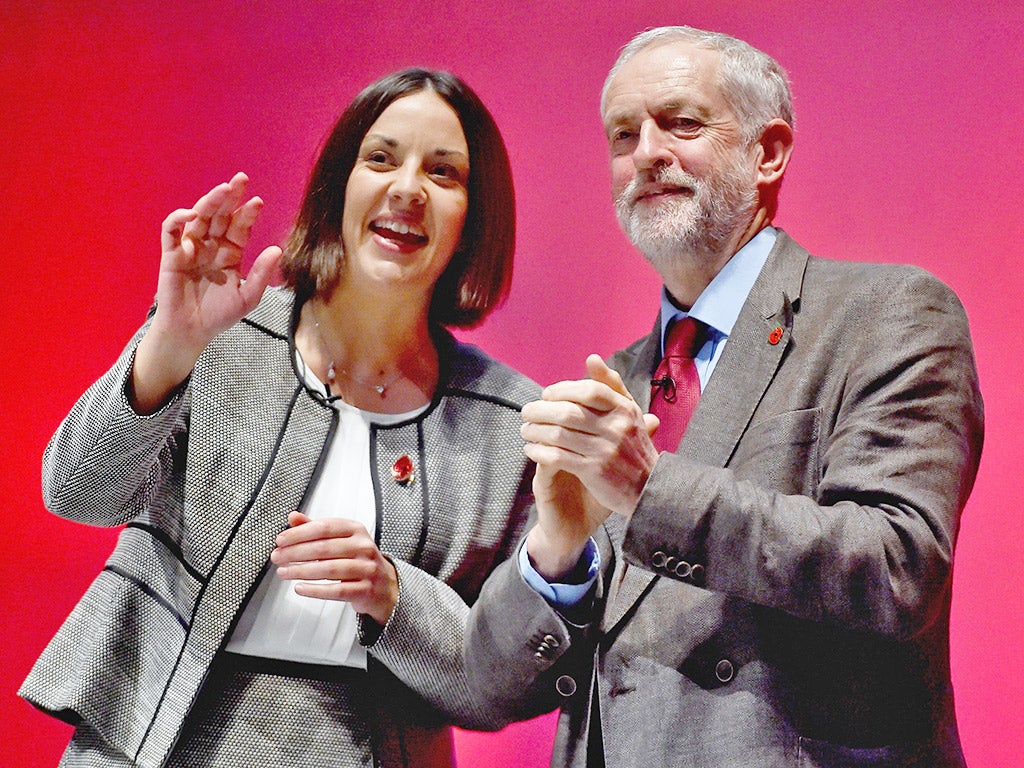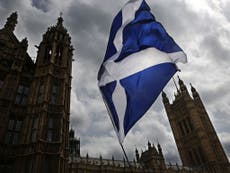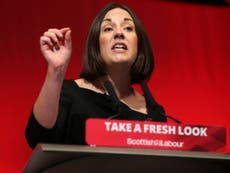Scots are not impressed with Labour's “Kez and Jez”
If Labour does end up in third place this May, they’ll likely find that electoral hole a difficult one to dig out of

It says a lot that the most interesting battle in the Scottish Parliament election is that for second place. Not only does it reveal the extent of SNP hegemony in spite of a mediocre record in government, but also the depths to which Labour (once all-conquering itself) has sunk.
According to one recent opinion poll Kezia Dugdale’s fledgling leadership of the main opposition party has had so little impact that it’s now trailing (marginally) behind the auld enemy, the Conservative Party.
Scottish Tories have so long been in the electoral doldrums that taking 20 per cent of the vote is considered a triumph. The key factor is Ruth Davidson: middle-class Scots are not impressed with “Kez and Jez”, but rate her very highly. “Labour are a joke” is a phrase that crops up regularly on the doorstep.
The Labour vote, already weakened by two consecutive Holyrood election defeats, is soft. What the Tories are attempting to do is persuade No voters of whatever ideological hue that they should vote Conservative to “hold the SNP to account”.
There are signs this is working, albeit on a modest scale. A recent YouGov poll showed that Davidson’s approval ratings were high across all the Unionist parties, particularly among Liberal Democrat voters. The hope is that referendum No votes will become Tory votes, just as Yes votes are now overwhelmingly SNP.
This must be deeply worrying for Labour, which hopes its pledge to increase income tax to mitigate “Tory cuts” will, at the least, keep them in the game. Aspects of that policy, however, were badly handled. As a senior Scottish Tory source recently remarked of the latest opinion polls: “We have a ceiling, but Labour don’t have a floor.”
Scottish Tories know this from bitter experience. Having performed much better than often remembered during the 1980s and early Nineties (a million Scots voted Tory in 1979, more than supported the SNP in 2011), at the 1997 general election the party secured just 17.5 per cent of the vote and no MPs. That by no means constituted rock bottom: the vote share fell further at every subsequent election, Scottish or UK.
So if Labour does end up in third place this May, they’ll likely find that electoral hole a difficult one to dig out of.
Davidson’s recent claim that she was “ready to serve” as leader of the opposition was, therefore, a delicate balancing act between motivating her supporters while also managing expectations. To Davidson’s credit, she’s also making sure this (modest) Tory revival isn’t just another triumph of style over substance. In London earlier this week, she delivered a thoughtful lecture on poverty, which included proposals for tackling the attainment gap, rejecting “snobbish” attitudes towards further education, and even linking chief executive pay to company performance.
It’s a pragmatic Tory vision that looks increasingly likely to pay electoral dividends in three months’ time.



Join our commenting forum
Join thought-provoking conversations, follow other Independent readers and see their replies